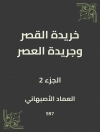In ‘Verses 1889-1896, ‘ Rudyard Kipling presents a compelling anthology of poetry that encapsulates his diverse engagement with themes such as imperialism, childhood, and the complexities of human experience. The collection showcases Kipling’s distinctive literary style, marked by musicality and vivid imagery, which reflects both his mastery of traditional forms and a willingness to innovate. Set against the backdrop of the late 19th century, a period of significant British expansion and societal change, these verses serve as a microcosm of the era’s cultural and political tensions, revealing the intricacies of life within a global empire. Rudyard Kipling, a product of colonial India, drew profoundly on his personal experiences and observations to craft his literary voice. His early life in the Indian subcontinent, coupled with later experiences in England and a deep-seated fascination with the imperial ethos, profoundly influenced his writing, particularly within the context of adventure and the psychological journey of the individual. Kipling’s dual identity as both an insider and outsider affords his work a unique depth, plumbing the strains of belonging and alienation. ‘Verses 1889-1896’ is recommended for readers interested in exploring the rich interplay of personal and national identity through poetry. Whether you are a longtime admirer of Kipling or a newcomer to his work, this collection promises a nuanced reflection on the Victorian condition and remains a cornerstone in understanding the literary landscape of its time.
लेखक के बारे में
Rudyard Kipling (1865–1936), born in Bombay, was an English journalist, short-story writer, poet, and novelist. Kipling’s works of fiction include ‘The Jungle Book’ (1894), ‘Kim’ (1901), and numerous short stories, including ‘The Man Who Would Be King’ (1888). His poems include ‘Mandalay’ (1890), ‘Gunga Din’ (1890), and ‘If—’ (1910). Kipling was one of the most popular writers in England, in both prose and verse, in the late 19th and early 20th centuries. His early years in India influenced much of his work, which is noted for its insights into the British Empire. He is seen as an innovator in the art of the short story, with his children’s literature distinguishing him in its mixture of fantasy, folklore, and realism. His collection ‘Verses 1889-1896’ reflects the diversity of his early work, combining elements of his experiences in British colonial life. In 1907, he was awarded the Nobel Prize in Literature, becoming the first English-language writer to receive the prize. Despite his prodigious output and his popularity during his lifetime, Kipling’s reputation has since become complex, with modern critics divided on his imperialist perspectives and his conservative views, even as his literary achievements continue to be celebrated for their imagination and linguistic flair.












